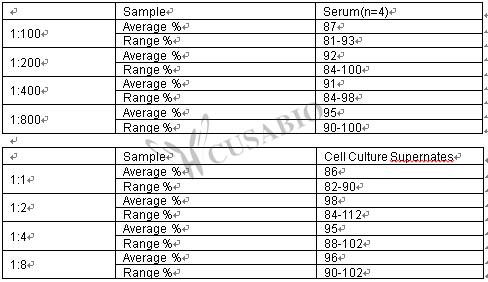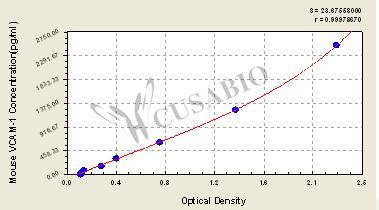This mouse VCAM1 ELISA kit employs the quantitative sandwich enzyme immunoassay technique to measure the levels of mouse VCAM1 in the serum, plasma, cell culture supernates, or tissue homogenates. Antibody specific for VCAM1 has been pre-coated onto the microplate. Standards and samples are pipetted into the wells and any VCAM1 present is bound by the immobilized antibody. After removing any unbound substances, a biotin-conjugated VCAM1 antibody is added to the wells. After washing, avidin conjugated HRP is added to the wells, forming an antibody-antigen-enzyme-labeled antibody complex. Following a wash to remove any unbound HRP-avidin, the TMB substrate solution is added to the wells, and the color develops into blue. The color changes from blue to yellow after the addition of stop solution into the wells. The color intensity is in proportion to the amount of VCAM1 bound in the initial step.
VCAM1 is inducibly and mainly expressed in endothelial cells. As a cell adhesion molecule, VCAM1 contributes to modulating inflammation-related vascular adhesion and the transendothelial migration of leukocytes, such as macrophages and T cells. VCAM1 is closely linked to the occurrence and development of inflammatory diseases, including rheumatoid arthritis, asthma, and transplant rejection. Many studies have shown that VCAM1 is expressed in different cancer types such as breast, renal, and gastric cancers. High expression of VCAM1 has been found in breast cancer and gastric cancer and is associated with tumor angiogenesis and metastasis.







